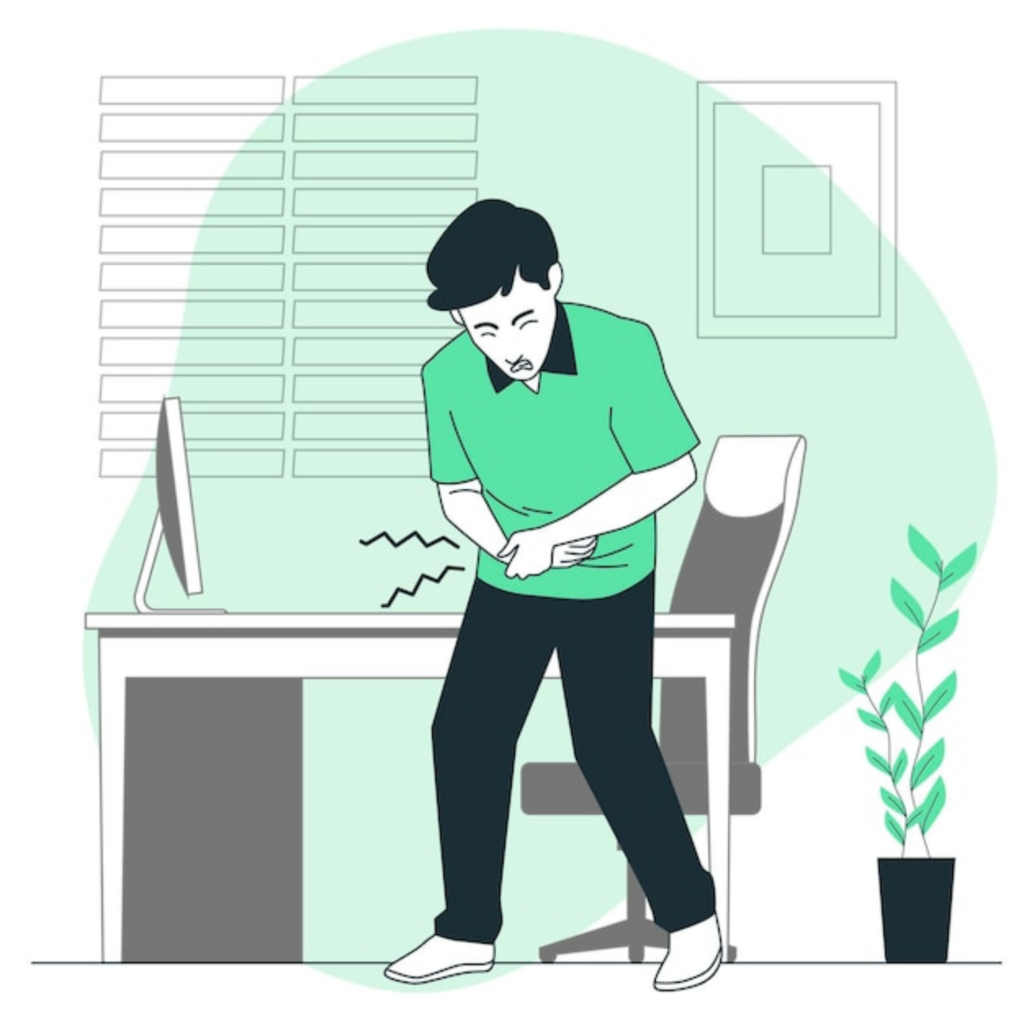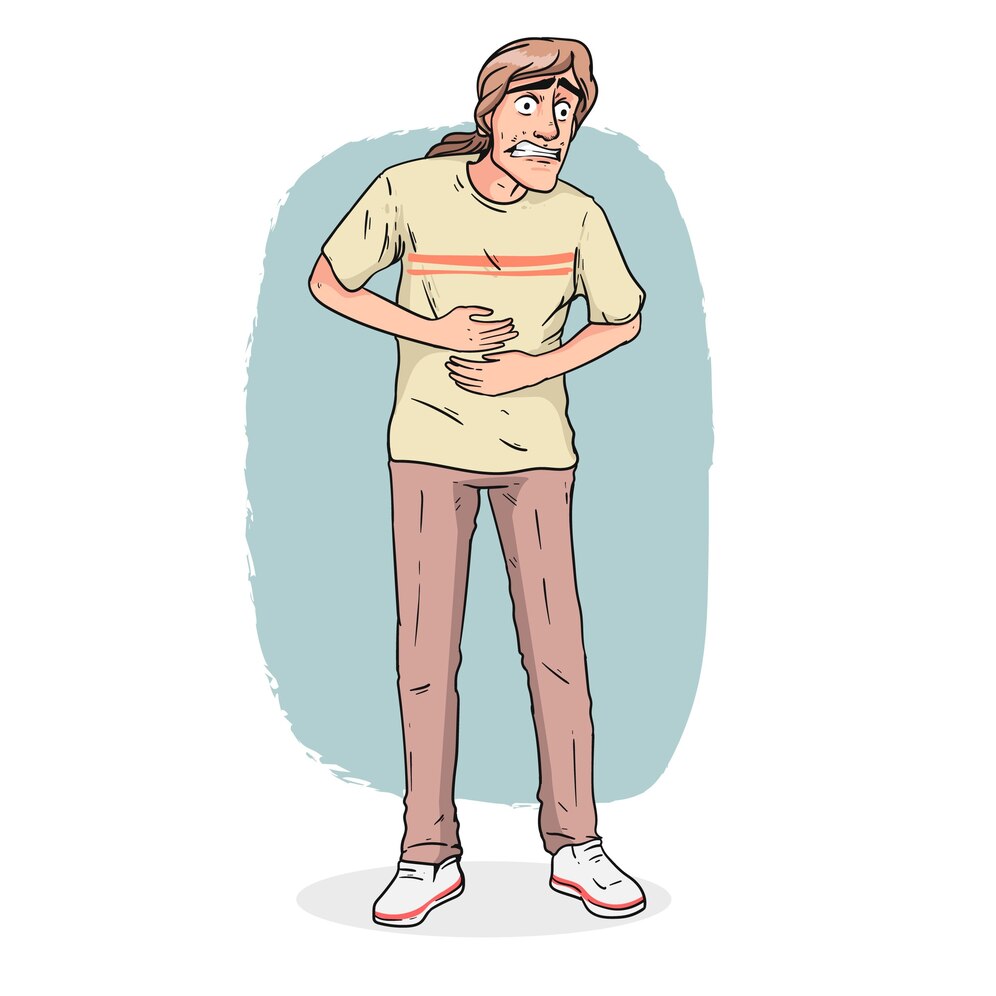can constipation cause back pain and leg pain
Few people may be aware that constipation can cause problems other than stomach problems, despite the fact that many are familiar with the pain and annoyance it causes. Unexpectedly, there is a connection between leg and back pain and constipation, highlighting a little-known yet important part of our health. We’ll discuss the complex relationship between constipation and the unanticipated back and leg discomfort it can produce in this blog.
When the movement of stool through the digestive system slows down, it can become hard and difficult to pass, which is known as constipation. These hard stools press against surrounding tissues, such as the pelvic region’s blood vessels and nerves, for an extended period of time.

Can constipation cause abdominal and hip pain
Constipation is the outcome of hard, difficult-to-pass stools formed when the regular movement of stool through the digestive system slows down. This stagnation can put pressure on the intestinal walls in addition to causing bloating and distension in the abdomen. The ensuing discomfort can emerge as aching or cramping sensations in the abdomen area. The complex system of nerves in the pelvic area provides connections to the hips as well as other sections of the body. Hip pain may result from irritation of these nerves caused by pressure from constipation. This occurrence is an example of referred pain, in which the hips or other seemingly unrelated tissues become inflamed due to discomfort originating in the digestive system. The act of straining to pass solid faeces during constipation can put further strain on the hip and lower abdominal muscles. Tension and soreness in the muscles may arise from this increased strain. Chronic hip discomfort may eventually result from prolonged straining brought on by constipation, underscoring the significance of treating constipation in order to preserve general comfort.

Can constipation cause pelvic and side pain
Faeces that have solidified in the intestines might accumulate as a result of constipation, which is typified by the slow passage of stool through the digestive tract. Pressure from this build-up puts strain on nearby tissues, such as the pelvic area’s blood vessels and nerves. This might interfere with general comfort since people may feel pain, cramps, or discomfort in the pelvic area. The pelvic region has a vast network of nerves, which can become irritated by pressure brought on by constipation. Referred pain, in which the source of discomfort in the digestive system appears as pain in seemingly unrelated locations, such the pelvic region, is frequently the result of this irritation. Recognizing the wider effects of constipation requires an understanding of this phenomena. Pain in the flank region may result from pelvic pressure brought on by constipation that also extends to the sides of the abdomen. The kidneys and a section of the digestive tract are located on the sides of the body, sometimes referred to as the flanks. The intricacy of discomfort associated with constipation can be further compounded by side pain, which may be caused by the increased strain on these structures during constipation.
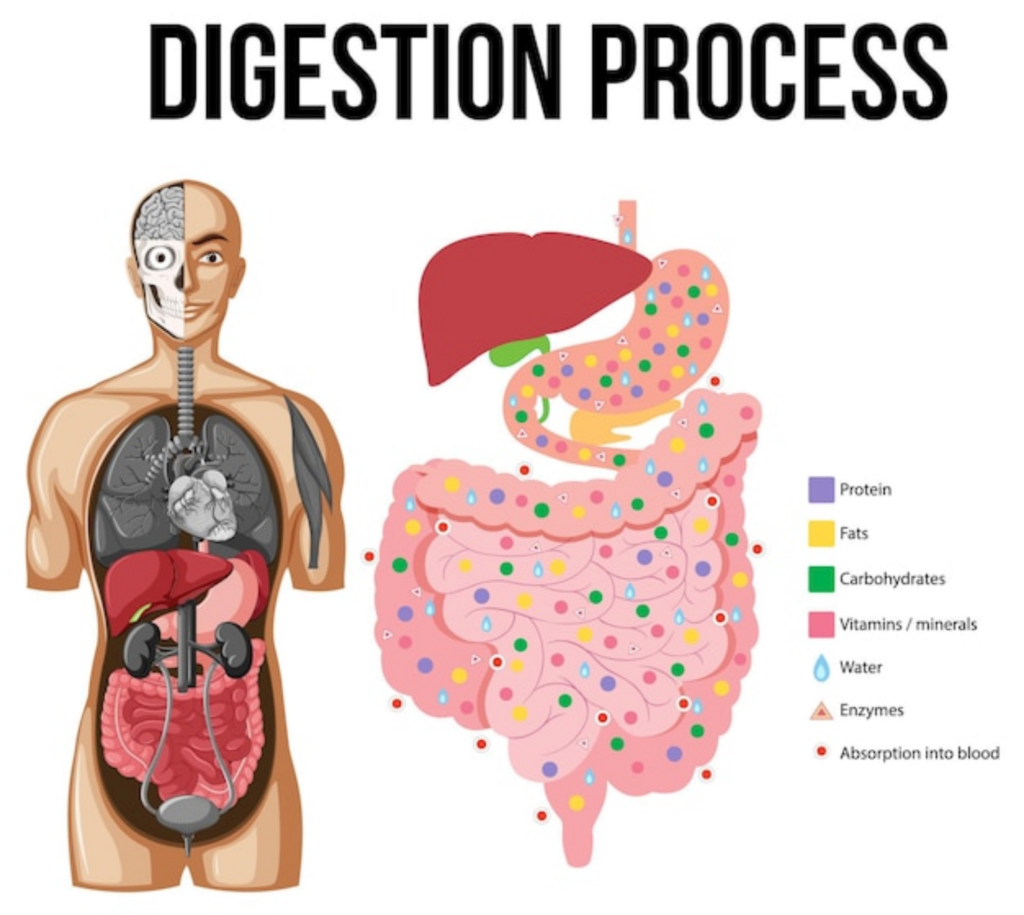
Can constipation cause testicle pain?
Testicles are among the many bodily parts that are connected to the complex network of nerves in the lower abdomen and pelvis. The strain that constipation puts on these nerves can cause nerve impingement, which in turn causes referred pain. In this case, the cause of the digestive system’s discomfort appears as pain in seemingly unrelated places, such the testicles. Pelvic congestion syndrome, characterized by engorged and congested blood vessels in the pelvic region, can also be caused by pressure associated with constipation. Blood flow to the testicles may be impacted by this congestion, which could result in pain and discomfort. Comprehending this element underscores the intricacy of the correlation between testicular pain and constipation. The straining that occurs during bowel movements during constipation might lead to an increase in abdominal pressure. The testicles’ blood arteries and nerves may be impacted by this pressure, which could spread to the pelvic area. Testicular pain and muscle strain can result from prolonged exertion.
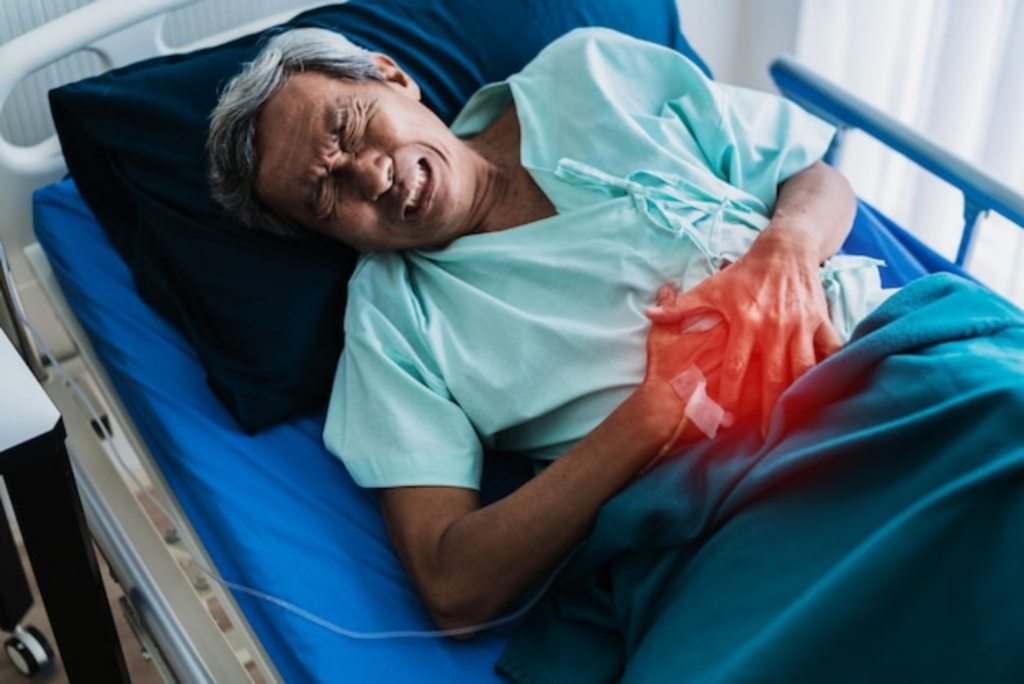
Can constipation cause rib pain?
An important part of breathing is the diaphragm, a big muscle that divides the chest and abdomen compartments. The diaphragm may become compromised due to pressure from constipation, which may result in ribcage pain or discomfort. Either the sides or even the front of the chest may hurt from this. The nerves in the thoracic and abdominal areas form a complicated network that is interconnected. Pressure from constipation on these neurons can result in referred pain, which is when pain in seemingly unrelated places, such the ribs, is caused by discomfort in the digestive tract. Comprehending this phenomenon is essential to comprehending the intricate nature of rib pain associated with constipation. The act of straining during bowel motions can raise the pressure inside the abdomen when one is constipated. The muscles and tissues surrounding the ribs may be impacted if this pressure is transferred to the ribcage. Rib-related pain and muscle straining might result from prolonged straining.
Can constipation cause nausea
The build-up of waste materials and toxins in the intestines during prolonged constipation may cause irritation of the lining of the gastrointestinal tract. The body reacts by producing nausea as a defence strategy to promote the elimination of these potentially dangerous substances since it perceives this as a possible threat.
The term “gut-brain axis” refers to the intricate communication network that is maintained between the gut and the brain. Constipation can interfere with this connection by informing the brain that there is a problem with the digestive system. The brain may react by making you feel queasy in order to notify the body that there are digestive problems. Moreover, nausea may also be a result of the body’s normal physiological reactions to constipation, such as elevated abdominal pressure during straining. Due to the strong relationship between the neural and digestive systems, disruptions in the digestive tract have the potential to affect the nerve system and cause nausea in reaction.

Can constipation cause cramping
The intestinal walls are compressed by the build-up of hardened stool, which causes the walls to sag. The intestines contract violently in an effort to push the stool forward as a result of this straining and the slow-moving stool. Abdominal cramping might be slight or severe as a result of these contractions, which are frequently strong and spasmodic. Gas accumulation in the digestive tract as a result of constipation frequently contributes to discomfort and distension in the abdomen. Gas formation is a common occurrence for those who are constipated because it can worsen cramping sensations. Constipation frequently leads to straining during bowel motions, which may increase abdominal muscular stress. Constipation can be uncomfortable in general, and cramps are one way the stress could manifest itself.

Can constipation cause blotting and chest pain?
An feeling of fullness and tightness in the abdomen might result from the build-up of tough faeces’ in the intestines. This distension is a contributing factor to bloating, which is a typical symptom among those suffering from constipation. The diaphragm may experience pressure if the abdomen expands upward. Abdominal distension brought on by constipation might affect the breathing muscle, the diaphragm. The diaphragm’s ability to carry out its normal function may be affected by tension, which may cause discomfort or tightness in the chest. This surprising link emphasizes how closely the digestive and respiratory systems interact. Constipation-induced pressure can result in referred pain because of the interwoven network of nerves in the thoracic and abdominal areas. People can feel pain in their chest that doesn’t seem to be connected to their stomach problems. Deciphering this phenomenon is essential to understanding the intricacy of chest pain associated with constipation. Constipation frequently results in straining during bowel movements, which can lead to increased tension in the muscles of the chest and abdomen. The general discomfort brought on by constipation may be exacerbated by this tension, which may present as chest pain.
Can an ovarian cyst cause abdominal and back pain during constipation?
Fluid-filled sacs called ovarian cysts can form inside or on top of the ovaries. Many cysts are benign and asymptomatic, but some can hurt or cause discomfort, especially if they get bigger or cause problems. These cysts’ pelvic placement may be a factor in the intricate interaction of symptoms. For those who have ovarian cysts, constipation may be more severe due to the cysts’ close closeness to the digestive system. Constipation can increase the pressure in the abdominal cavity, which can impact cysts and enhance pain, cramping, or pressure symptoms. The nerves in the lower back are closely related to those in the pelvic area. Because constipation puts pressure on the pelvic nerves, people with ovarian cysts may feel pain spreading from the abdomen all the way down to the lower back. This may exacerbate the pain and complicate the determination of whether the pain is only associated with constipation or impacted by the cysts. Straining brought on by constipation can occasionally result in elevated abdominal pressure and the rupture of an ovarian cyst. This can cause abrupt, excruciating back and abdominal pain, which frequently necessitates seeking emergency medical assistance.

Can constipation cause groin and flank pain
The complex and interwoven pelvic area is the meeting point of the reproductive and digestive systems. Referred pain can result from pressure on the pelvic organs, such as the intestines and surrounding structures, caused by constipation. This intricate network of nerves and tissues can result in groin pain, which is frequently described as a dull aching or discomfort. In the same way, pressure brought on by constipation may also affect the flanks, which are the sides of the body that lie between the pelvic region and the lower ribs. Flab discomfort may be caused by pressure on organs like the kidneys or surrounding tissues. Although flank pain is not a typical sign of constipation, the abdominal and pelvic regions’ interrelated nerves and organs might make it an unexpected consequence. Constipation is a regular occurrence, and straining during it can result in increased tension in the muscles of the belly, pelvis, groin, and flanks. Constipation is an unpleasant experience in and of itself, and this strain can show itself as pain or discomfort.
Can constipation cause numbness; headache and vomiting
Numbness may result from strain on lower back and pelvic nerves brought on by constipation. A radiating numbness that reaches the legs or other portions of the body may result from damage to the interconnected network of nerves in these places. Referred feeling is a phenomena that emphasizes the intricate connection between the neurological system and digestive health. Headaches can be caused by constipation in a number of ways. Exerting yourself while having a bowel movement might raise interdenominational pressure, which can impact blood flow and possibly cause vascular headaches. Constipation can also lead to the formation of waste material in the intestines, which can cause certain types of reactions that affect general health and perhaps cause tension-type headaches. Severe constipation can cause vomiting; however this is less usual. Prolonged constipation can cause the abdominal area to become extremely pressurized, which might trigger the vomiting reflex. Furthermore, the Presence of toxins in the body as a result of constipation can cause nausea and vomiting, which the body uses as a defence mechanism to eliminate dangerous chemicals.

Can constipation cause pain in night?
The body’s normal functions, such as digestion, continue as nightfall draws near. Stool stagnation in the intestines might cause pain at night for people who are suffering from constipation. Stool accumulation in the intestines can put pressure on the colon, which can result in distension and pain in the lower abdomen. Because of the way the pressure spreads when lying down as opposed to standing or sitting, this discomfort could be more noticeable. Aching or cramping sensations may result from the nighttime increase in abdominal pressure. Some people may unintentionally feel a slight tensing or straining of their abdominal muscles while they sleep, particularly if they are trying to pass stool. This straining that occurs subconsciously might intensify pain perception and discomfort associated with constipation.
PREVENTIVE MEASURES FOR NIGHTTIME PAIN
Constipation can be avoided by drinking enough water throughout the day to maintain regular bowel motions. Consuming a diet high in fruits, vegetables, whole grains, and fibre promotes healthy digestion and helps ward off constipation. Including frequent exercise in your regimen can encourage bowel movements. Having a regular evening routine that includes using the restroom can encourage regular nightly bowel movements and support the general health of the gastrointestinal system.

Can constipation cause back pain in dogs
Constipated dogs may show indications of back pain. Constipation’s discomfort and strain can cause changes in posture and movement, which puts stress on the back’s muscles and joints. This may lead to visible symptoms of pain or discomfort, like stiffness, hesitancy to move, or abnormalities in gait. The spine may experience pressure from the stomach organs caused by constipation. Dogs may get back discomfort as a result of this pressure acting on their lower back nerves. Constipation can cause pain in other parts of the body, including the back, due to the complex network of nerves in the stomach and pelvic regions. Constipated dogs often struggle when they go to the potty. Back pain may be brought on by or made worse by this straining, which can put more tension on the muscles and tissues that surround the spine. Back pain that persists over time may be caused by straining brought on by constipation.
Can constipation cause back pain in toddlers
Toddlers who have trouble passing faeces will have infrequent or straining bowel movements, which is known as constipation. The causes can be anything from nutritional issues and dehydration to lifestyle modifications or psychological strain. Even though stomach discomfort is frequently linked to constipation, kids may communicate their discomfort in numerous ways. Toddlers with back pain may exhibit reluctance to move, hunched posture, or uncomfortable expressions while playing or sitting. It’s critical to comprehend these minor indicators if you want to diagnose constipation-related back discomfort early on. The spine may experience pressure from the stomach organs caused by constipation. Due to their still-developing bodies, toddlers may experience lower back discomfort as a result of this pressure on their lower back nerves. The nerves in the abdominal and pelvic regions are intertwined, which can cause discomfort from constipation to spread to other parts of the body, including the back. Toddlers who are constipated frequently struggle when they go to the toilet. Back pain may be brought on by or made worse by this straining, which can put more tension on the muscles and tissues that surround the spine. Back pain that persists over time may be caused by straining brought on by constipation.
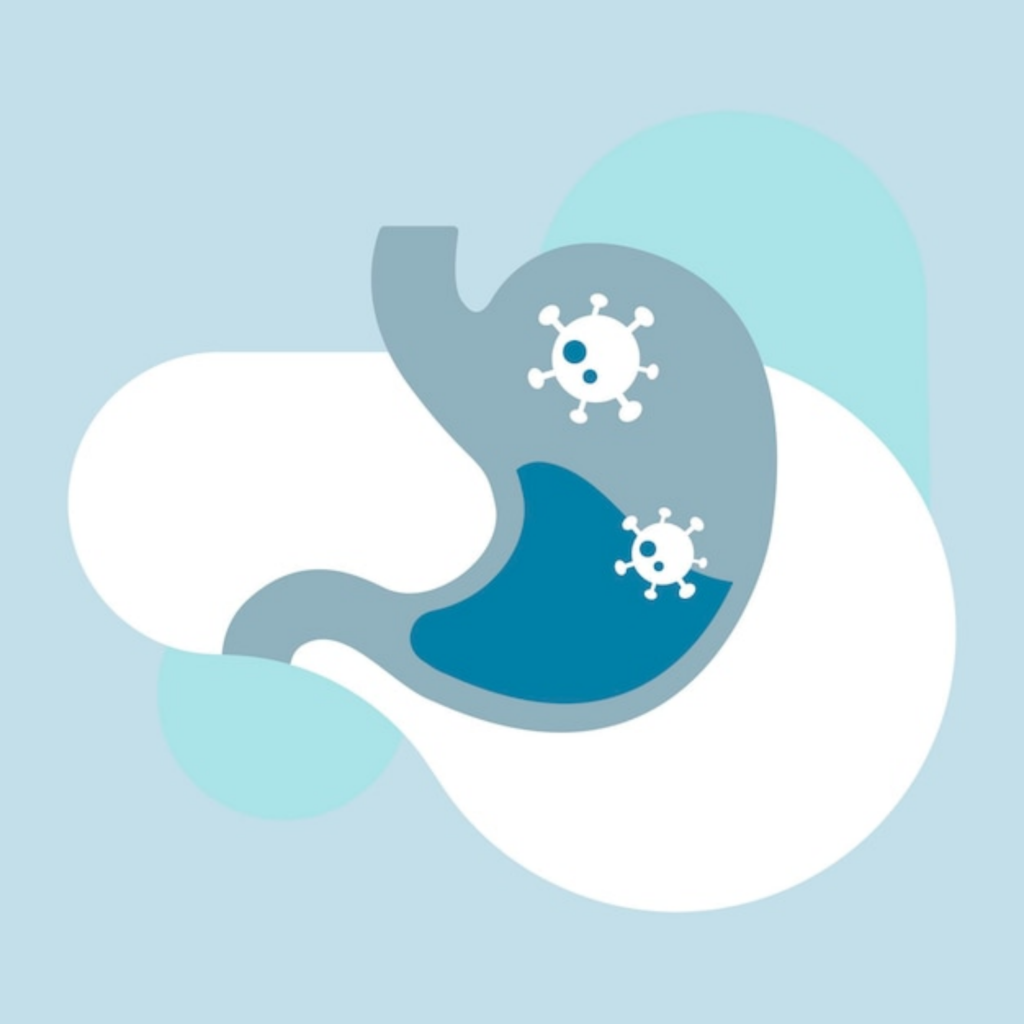
Can constipation cause lower back pain and shortness of breath
Constipation can put strain on the abdominal organs, which can also affect the lower back. Lower back discomfort may be a result of this pressure acting on the lumbar nerves. People who are constipated sometimes have lower back pain or aches, which emphasizes how closely related the neurological and digestive systems are. The diaphragm, a muscle essential to breathing, can become compromised in its normal function if constipation puts pressure on it. Breathlessness or shortness of breath may be experienced by people as a result of the diaphragm’s inhibition. This unanticipated connection between respiratory symptoms and constipation highlights the extensive effects of digestive problems. Constipation can produce distension that affects structures other than the abdomen, such as the diaphragm. The diaphragm’s capacity to contract and relax properly during breathing might be hampered by abdominal distension, which can also cause upward pressure. Breathlessness may be exacerbated by this. Lower back pain and dyspepsia can be made worse by straining during constipation, which is a regular occurrence. Exertion can elevate the interpersonal pressure, impacting the surrounding anatomical structures and possibly jeopardizing the respiratory system.
Can gas or constipation causes lower and upper back pain
A common problem affecting people of all ages and lifestyles is back discomfort. Lower and upper back discomfort can be attributed to gastrointestinal conditions like gas and constipation, which may surprise you as they are frequently linked to spinal problems or muscular strains. We’ll explore the relationship between these digestive issues and back pain in this blog post. An uncomfortable accumulation of gas, a normal consequence of digestion, can occur in the digestive tract. It can cause distension and bloating when it becomes caught in the intestines, which can cause pain in the upper and lower back. Because the neurological and digestive systems are so close together, back pain may be associated with gas discomfort. Stool collection in the lower abdomen can cause discomfort by applying pressure to the lower back. Moreover, straining during bowel motions brought on by constipation might aggravate upper back pain by tensing the muscles in this area. Although they usually originate in the lower abdomen, gas pains can sometimes affect the lower back. Pain can be felt in the back as a result of pressure that builds up from gas formation and bloating. When digestion is at its peak after meals, this phenomenon is very frequent. Constipation puts strain on the lower abdomen and, consequently, on the muscles and nerves in the upper back. People who are constipated often strain, which can cause tension in the lower back to radiate upward and cause pain in the upper back and in the space between the shoulder blades.
Pain associated with gas and constipation can refer to different parts of the body because the digestive and spinal regions have a complex network of neurons. Comprehending this pattern of referral is essential for making the connection between gastrointestinal problems and back discomfort.
Can constipation cause pain in middle back pain?
Stool retention in the intestines can put pressure on the abdomen, which can cause pain that radiates to the middle back. Furthermore, straining when constipated might exacerbate back pain and tightness in the mid-back area. Because of the intricate network of nerves in the digestive and spinal regions, pain associated with gas and pressure brought on by constipation can be referred to different parts of the body. The interdependence of these systems is demonstrated by middle back pain brought on by gas or constipation. Posture and movement may change as a result of gas or constipation discomfort. People who have these digestive problems can unintentionally change their posture, which would cause their middle back muscles to become more tense. Middle back pain that persists can be attributed to prolonged tension.
Can constipation cause right back and neck pain
Stool retention in the intestines can put pressure on the abdomen, which can cause pain that radiates to the middle back. Furthermore, straining when constipated might exacerbate back pain and tightness in the mid-back area. Because of the intricate network of nerves in the digestive and spinal regions, pain associated with gas and pressure brought on by constipation can be referred to different parts of the body. The interdependence of these systems is demonstrated by middle back pain brought on by gas or constipation. Posture and movement may change as a result of gas or constipation discomfort. People who have these digestive problems can unintentionally change their posture, which would cause their middle back muscles to become more tense. Middle back pain that persists can be attributed to prolonged tension.

Can constipation cause right back and neck pain
Constipation affects more than only the belly; it affects the right back and neck, among other places. Constipation can put a tension on the abdominal organs and even the right side of the back. Right back discomfort may be exacerbated by this pressure on the lumbar and thoracic nerves. People who are constipated could have pain or discomfort in particular on the right side of their back. Because the nerves in the stomach and spinal regions are related, pressure brought on by constipation might result in referred pain. This transferred pain might show up in places you least expect, like the neck. The constellation of symptoms associated with constipation might be further complicated by the right side of the neck stiffness or soreness that some individuals may experience. Constipation can cause straining, which can lead to increased muscle tension in the back and neck as well as the abdomen. Pain, especially on the right side, could be the result of this strain. Constant straining in these areas due to constipation might cause chronic discomfort.
